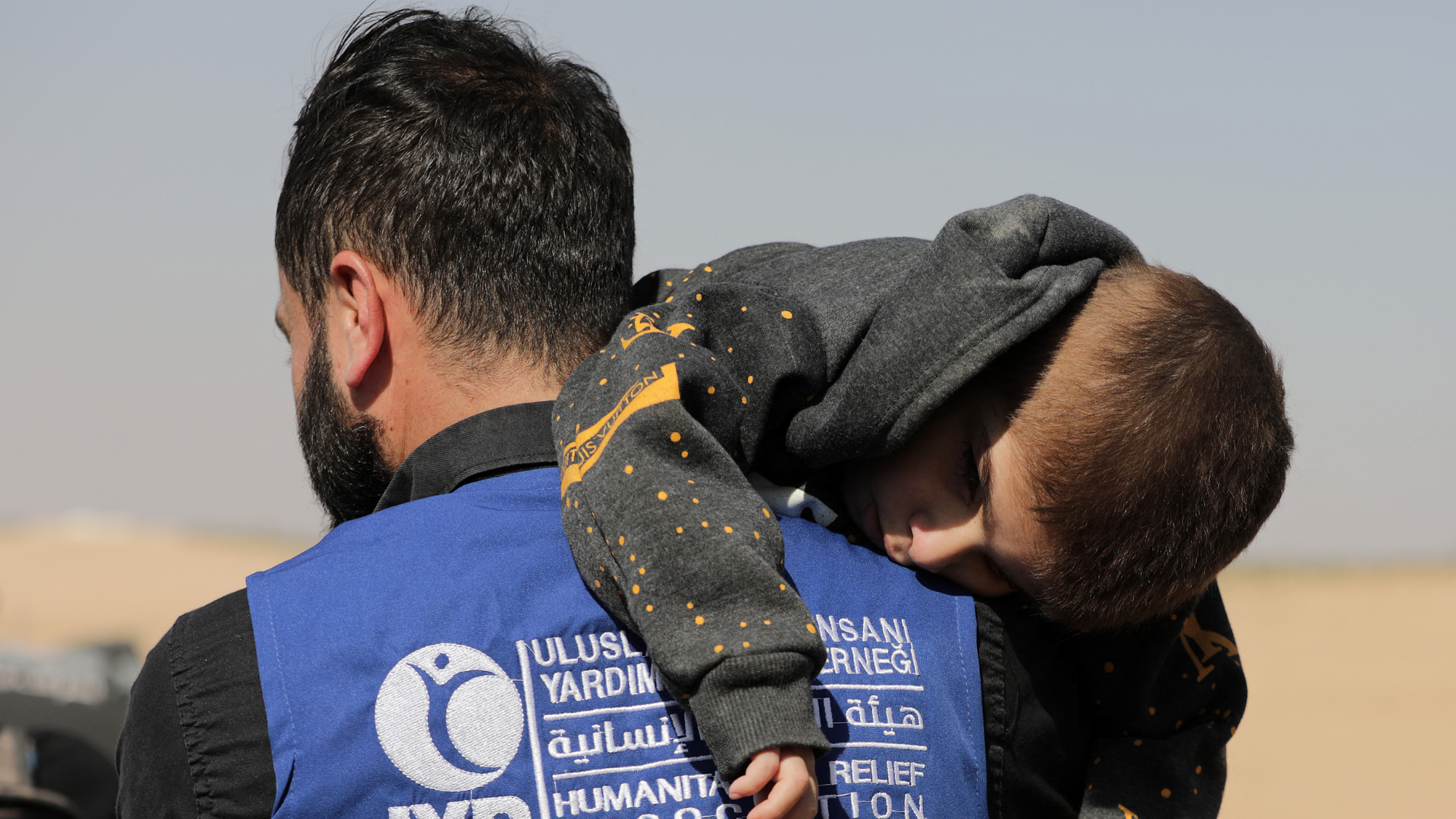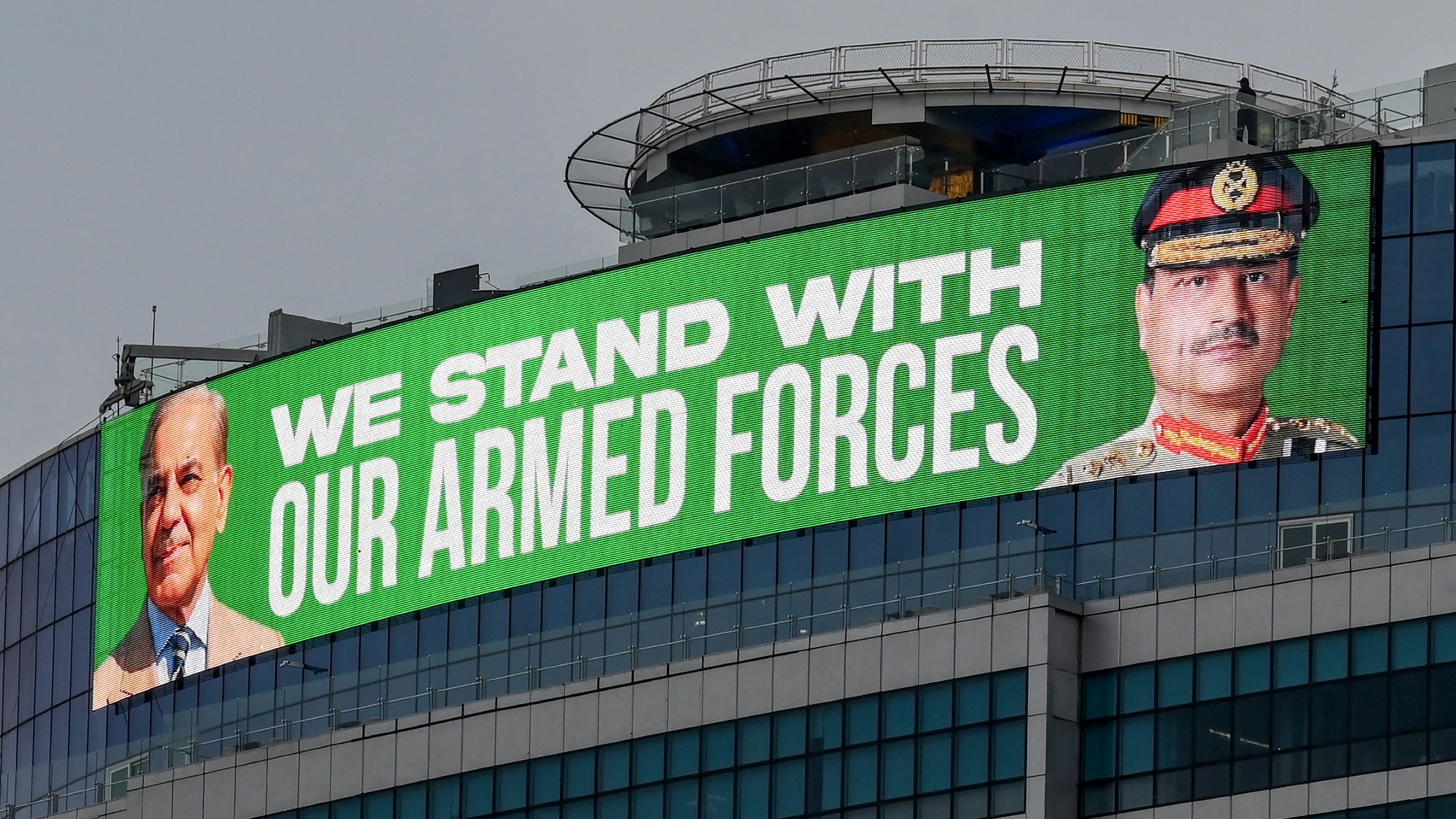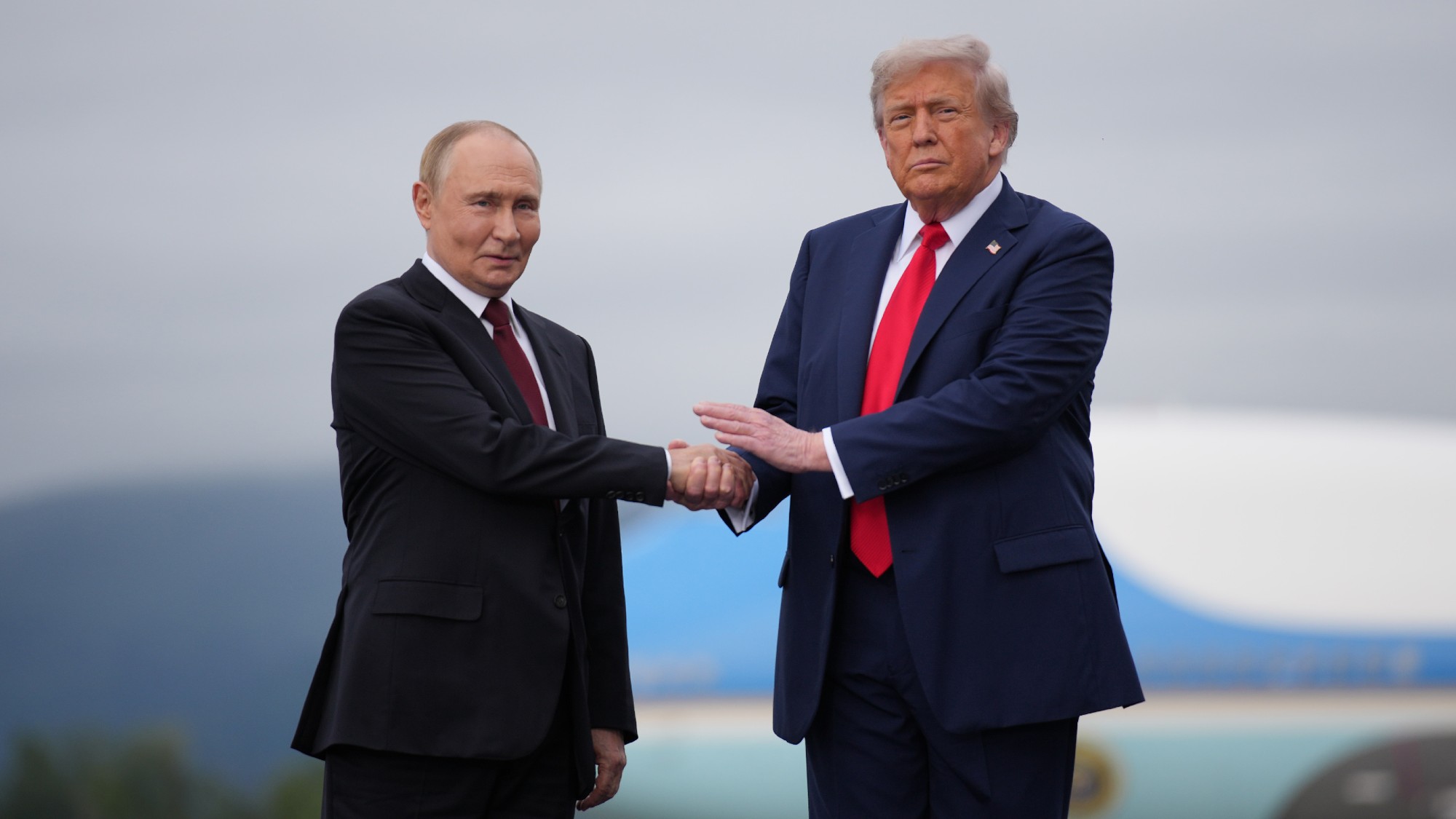Exodus: the desperate rush to get out of Lebanon
As the Israel-Hezbollah conflict escalates Lebanon faces an 'unprecedented' refugee crisis

A free daily email with the biggest news stories of the day – and the best features from TheWeek.com
You are now subscribed
Your newsletter sign-up was successful
Refugee crises are nothing new in the Middle East, wrote Nicholas R. Micinski and Kelsey Norman on The Conversation (Melbourne). The creation of the State of Israel in 1948 brought about "the world's longest-standing refugee situation": six million Palestinians spread across the Levant. The first Gulf War and the 2003 US invasion of Iraq left millions displaced, as did Israel's 2006 war with Hezbollah, and subsequent conflicts in Syria, Libya and Yemen. But the current exodus from Lebanon has plunged the region into an unprecedented crisis. In the weeks since Israel launched its full-scale invasion and bombardment, 1.2 million people (a fifth of Lebanon's population) have been displaced – adding to the two million Gazans displaced since last October.
Lebanon was already on its knees before this conflict escalated, said Vivian Yee in The New York Times. It had endured years of unstable government, largely owing to the insidious role played in its politics by Hezbollah, the Shia militia that doubles as a political party. It hasn't had a president for two years – it's now run by a weak caretaker regime – and the crippling economic crisis that took hold in 2019 has left millions impoverished. And after Israel's onslaught began last month, those same people are doing all they can just to survive, said The National (Abu Dhabi). Many have holed up in schools, hotels and nightclubs designated as shelters by the Lebanese government. But huge numbers are fleeing the country. A fortunate minority have stumped up $1,800 for one-way tickets on charter yachts to Cyprus; about 6,000 have taken the bold step of fleeing to Iraq.
What makes this exodus especially tragic, said Tasnim Chaaban in L'Orient-Le Jour (Beirut), is that it includes vast numbers of people who'd found, in Lebanon, a refuge from other war zones. Even before this crisis, Lebanon was home to more refugees per head than any other country on Earth, among them 250,000 Palestinians and 1.5 million Syrians – refugees from their own 13-year civil war. Most of the 400,000 people who've fled into Syria since September have been people who not long ago had fled from Syria into Lebanon.
The Week
Escape your echo chamber. Get the facts behind the news, plus analysis from multiple perspectives.

Sign up for The Week's Free Newsletters
From our morning news briefing to a weekly Good News Newsletter, get the best of The Week delivered directly to your inbox.
From our morning news briefing to a weekly Good News Newsletter, get the best of The Week delivered directly to your inbox.
To understand the reasons for the sheer scale of this onslaught, said Daniel Byman of the Centre for Strategic and International Studies (Washington), you have to go back to the 2006 war with Hezbollah, when Israel poured troops into Lebanon expecting to sweep the militia's fighters aside. Israel's failure to do so shattered its reputation for military invincibility, while the defiance displayed by Hezbollah forces "electrified Arab audiences".
After that achievement, the group, backed by Iran, steadily increased its power: it vastly expanded its missile arsenals – locating many of the weapons in civilian areas – and extended its huge network of underground tunnels. But over that same period Israel, too, has been making preparations for another war with Hezbollah, and this time committing itself to pursue a far more destructive doctrine regarding the use of force – namely, to obliterate every village from which Israel is fired on. That massive retaliation is what we're now witnessing, said Mat Nashed in Al Jazeera (Dubai), and the devastation it has caused has severely damaged Hezbollah's reputation and its popularity. Lebanon's Christian and Sunni Muslim factions, long resentful of the way Hezbollah has "hijacked" the state through its military strength, are hoping this could be the moment to banish Hezbollah to the political sidelines for ever.
The EU is now offering financial assistance to Lebanon, said Rym Momtaz of the Carnegie Endowment for International Peace (Washington), but it needs to do a lot more: it should use its diplomatic and military weight in the UN Interim Force in Lebanon (Unifil) to push for "a sequenced de-escalation". For, in truth, Europe has a pressing reason to fix this mess – if it doesn't, the fresh influx of migrants pouring into the continent via Cyprus could completely destabilise European politics. Crises in Lebanon have a way of spilling far beyond the nation's borders; and unless checked, this one will prove no different.
A free daily email with the biggest news stories of the day – and the best features from TheWeek.com
-
 Switzerland could vote to cap its population
Switzerland could vote to cap its populationUnder the Radar Swiss People’s Party proposes referendum on radical anti-immigration measure to limit residents to 10 million
-
 Political cartoons for February 15
Political cartoons for February 15Cartoons Sunday's political cartoons include political ventriloquism, Europe in the middle, and more
-
 The broken water companies failing England and Wales
The broken water companies failing England and WalesExplainer With rising bills, deteriorating river health and a lack of investment, regulators face an uphill battle to stabilise the industry
-
 The fall of the generals: China’s military purge
The fall of the generals: China’s military purgeIn the Spotlight Xi Jinping’s extraordinary removal of senior general proves that no-one is safe from anti-corruption drive that has investigated millions
-
 Syria’s Kurds: abandoned by their US ally
Syria’s Kurds: abandoned by their US allyTalking Point Ahmed al-Sharaa’s lightning offensive against Syrian Kurdistan belies his promise to respect the country’s ethnic minorities
-
 Iran unleashes carnage on its own people
Iran unleashes carnage on its own peopleFeature Demonstrations began in late December as an economic protest
-
 The rise of the spymaster: a ‘tectonic shift’ in Ukraine’s politics
The rise of the spymaster: a ‘tectonic shift’ in Ukraine’s politicsIn the Spotlight President Zelenskyy’s new chief of staff, former head of military intelligence Kyrylo Budanov, is widely viewed as a potential successor
-
 How oil tankers have been weaponised
How oil tankers have been weaponisedThe Explainer The seizure of a Russian tanker in the Atlantic last week has drawn attention to the country’s clandestine shipping network
-
 Iran in flames: will the regime be toppled?
Iran in flames: will the regime be toppled?In Depth The moral case for removing the ayatollahs is clear, but what a post-regime Iran would look like is anything but
-
 Pakistan: Trump’s ‘favourite field marshal’ takes charge
Pakistan: Trump’s ‘favourite field marshal’ takes chargeIn the Spotlight Asim Munir’s control over all three branches of Pakistan’s military gives him ‘sweeping powers’ – and almost unlimited freedom to use them
-
 Pushing for peace: is Trump appeasing Moscow?
Pushing for peace: is Trump appeasing Moscow?In Depth European leaders succeeded in bringing themselves in from the cold and softening Moscow’s terms, but Kyiv still faces an unenviable choice